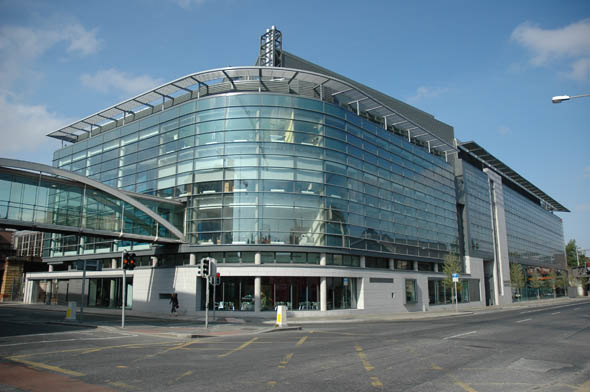The Trinity-based Advanced Materials and BioEngineering Research (Amber) centre is extending its partnership with Nokia Bell Labs as part of a four-year commitment that will see Nokia Bell Labs commit €1.1 million and Science Foundation Ireland (SFI) commit a further €1.2 million.
The agreement includes funding a number of “researchers-in-residence” already working in the institute, with the main research focus to be on energy storage technology and advanced thermal management systems that will enable devices that control, source and detect light to function more efficiently.
Nokia Bell Labs provides industry expertise and scientific knowledge, while Amber researchers have materials science prowess and world leading facilities. The partnership has, in the past, impacted areas such as energy storage and materials.
Amber is the leading materials science research group in Ireland, bringing together leading researchers from the Royal College of Surgeons in Ireland (RCSI), University College Cork (UCC) and Trinity. Its aim is to combine innovation and industry by doing extensive research into new materials that can be used to make existing processes more efficient.
In a press statement, Prof Michael Morris, the Director of Amber, emphasised that he was “delighted” with the partnership as it allowed the institute to investigate aspects of “the next generation of communication”. He went on to say that the institute are also looking to Europe for further funding.
The announcement took place in Trinity’s Advanced Microscopy Laboratory (AML) in the presence of Minister for Training, Skills and Innovation, John Halligan. The AML houses world-class microscopy facilities, all of which are available now to Nokia Bell Lab researchers, as well as the Amber and Trinity researchers. Halligan stated that the investment was “a testament to the importance of our ongoing investment in Ireland’s scientific research”, and that such partnerships were “further recognition of Ireland’s outstanding talent and state of the art infrastructure”.
Prof John Donegan, Amber researcher lecturer in Trinity’s School of Physics, works with Nokia Bell Labs to develop materials for more efficient optical communication. His team have developed new techniques for thermal control in devices used in data transfer, which the industry is expected to utilise in the near future. He recently published a paper on the development of new materials that could use their fluorescence to keep laser devices at a suitable temperature.







